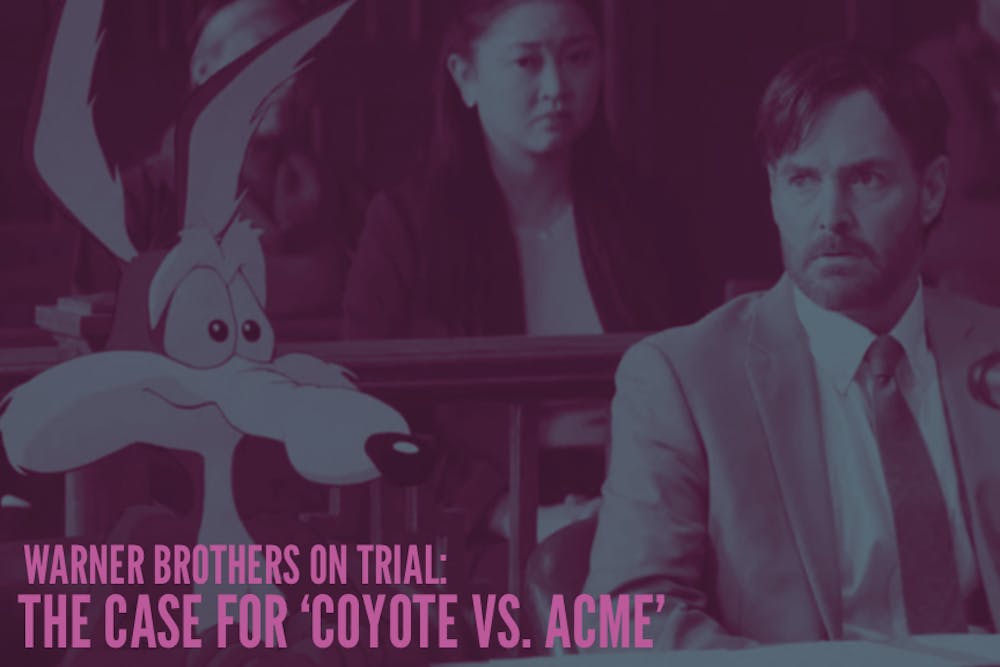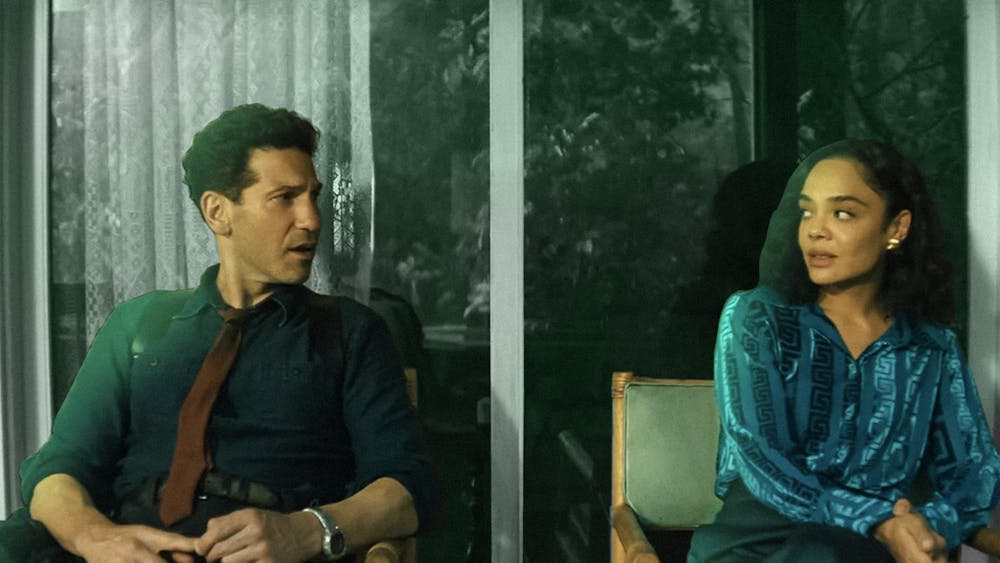In 1990, The New Yorker published an essay titled “Coyote v. Acme,” stylized as a court report covering a trial in which the villainous Wile E. Coyote sued the fictional Acme corporation over the failure of the company's products in Coyote's various schemes to catch the elusive Road Runner. The essay was a satire of court proceedings, while managing to adapt the classic “Road Runner and Wile E. Coyote” cartoon format into a lawsuit. Twenty-eight years later, Warner Bros. announced a feature adaptation of this essay. Promised to be a courtroom drama, the film was to star John Cena as Acme’s defense attorney, former "Saturday Night Live" star Will Forte as Coyote’s representative, and “To All the Boy’s” franchise star Lana Condor in an undisclosed role. The film was meant to come out in the summer of 2023, but Warner Bros. pushed the release date back to allow “Barbie” to dominate the summer releases.
So, “Coyote vs. Acme” wasn’t released in the summer. Or in the fall. In fact, Warner Bros. never made their actual release plans known for the film beyond “not quite yet.” It wasn’t until November 2023 that Warner Bros. acknowledged the film’s release: It wasn’t going to happen. The corporation in charge of the studio, Warner Brothers Discovery, released a statement that despite the film being fully complete, the movie would be more profitable as a written off tax-loss than as a theatrical release. Produced on an estimated budget of $70 million USD, the write-off of this singular film is estimated to be around $30 million.
This announcement brought Warner Bros'. artistic intentions into question. This is not the first time the studio has shelved a film permanently in order to claim a tax benefit. “Batgirl” and “Scoob: Holiday Haunt” were both films far into development before the corporation announced the films would be canceled instead. In both cases, the artists working on the film were not given advanced notice and were informed at the same time that the general public had been. “Coyote” was no different. This is not the only method Warner Bros. employs to claim these financial gains. Streaming originals produced by the studio such as “An American Pickle” or the popular animated series “Infinity Train” have previously been removed from online services permanently for the same reasons as the aforementioned films.
Warner Bros., sensing the fact that their decisions might be unpopular, announced that they would release the film if another studio or streaming service shows interest (and bids within the $75-$80 million range). Netflix, Sony, Amazon, Apple and Paramount all demonstrated interest in the film, with Paramount even offering a theatrical release, the original intention for the film’s distribution. None of the studios were offering quite enough to satiate Warner Bros'. needs, and in February the studio announced that they had received a $115 million write-down. The film’s status is unknown, and with the attention the film received in the last months of 2023, the studio’s silence is speaking volumes.
This is not the end of the story, because we don’t know how this story will end. Artists involved with the film such as voice actor Eric Bauza, live-action star Will Forte and screenwriter James Gunn have shown support for the film’s release. Gunn is also notably the CEO of Warner Bros. subsidiary DC Studios. If a film written by a CEO of a subsidiary company can be thrown away, what does that mean for lesser known writers? Producers who had seen the film in advanced screenings for the studios interested in bidding on the project have spoken out in favor of the film’s quality, with Phil Lord (writer of the critically acclaimed “Spider-Verse” films) speaking on the troubling implications of the film’s cancellation as well as the excellence of the work itself.
Another written-off Warner Bros. production was “Scooby-Doo and Krypto Too,” a crossover between the Scooby-Doo and Superman franchises. The film was meant to be straight to video, and was finished at the time of its cancellation. The film was never intended to be seen, but a week after its cancellation in March of last year, it was leaked online to the website archive.org. This motivated Warner Bros. to release the film on the digital markets. On Monday of this week, a credible leak appeared online containing a detailed beat-for-beat account of the plot for "Coyote vs. Acme." Maybe Warner Bros. is holding a proverbial stick of dynamite, and like the cartoon Coyote they’ve currently canceled, the pursuit of their goal might may lead to everything blowing up in their face instead.










